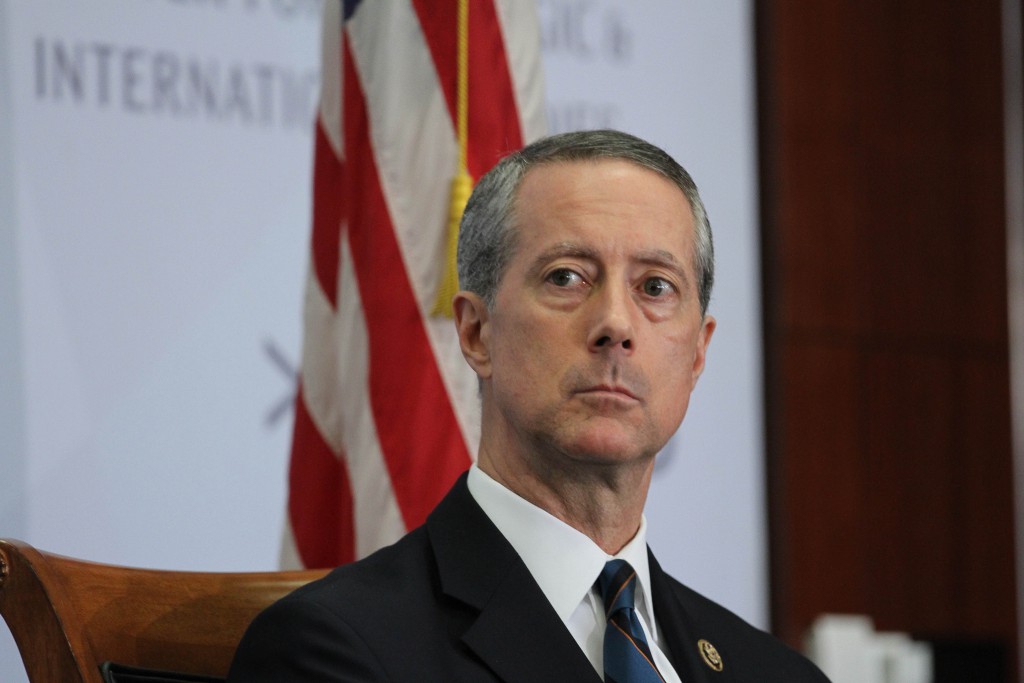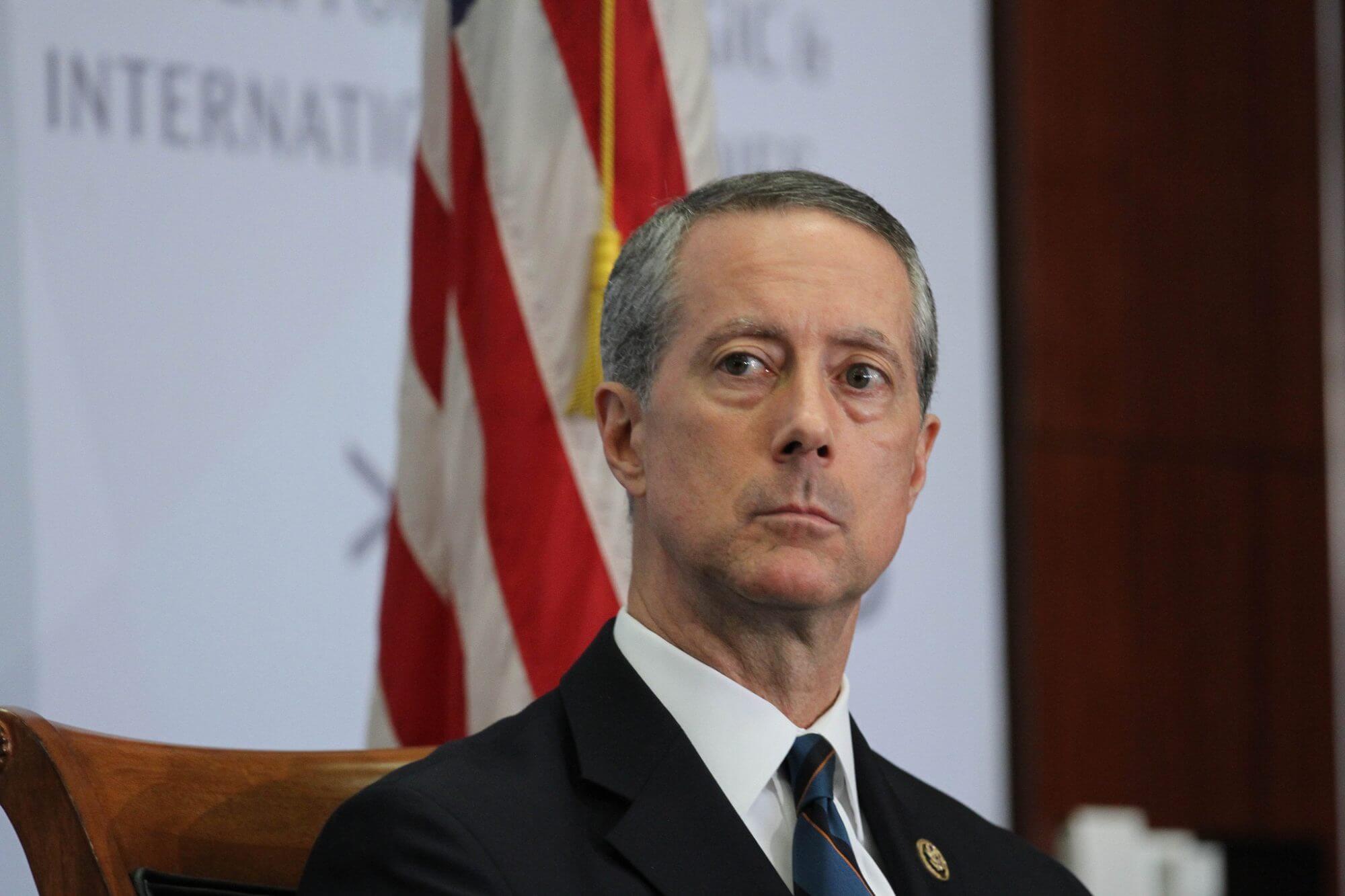
Rep. Mac Thornberry, chairman of the House Armed Services committee, said Monday he doesn’t know what the government’s responsibility is in providing healthcare related to transitioning for transgender armed service members. (Photo by the Center for Strategic and International Studies)
WASHINGTON– The Pentagon’s proposal to expand coverage for transgender service members raises questions about the government’s responsibility for the process of transitioning from one sex to another, Rep. Mac Thornberry said Monday.
Thornberry, chairman of the House Armed Services committee, said the military shouldn’t “be an experimental laboratory for social issues.” Thornberry also discussed the Defense Department’s new policy allowing women in combat roles.
“Don’t worry so much about a person’s color, gender, whatever it is…as long as they can do the job,” he said at a Capitol Hill news conference.
The Defense Department’s plan would extend Tricare mental health services for transgender service members and their families, the Military Times has reported. Under this rule, the government would pay for hormone replacement therapy.
Thornberry said the implications of the proposal are unclear.
“What’s the government’s responsibility in that medical process?” he said. “I don’t know the answer to that.”
Adam Smith, D-Wash., the leading Democrat on the House Armed Services committee, said he supports the Pentagon’s proposal.
“I applaud the move,” he said. “It’s all a part of making the military open and friendly to the LGBT community, which I support.”
“It’s a necessary healthcare procedure and one that should be available,” Smith said.
Evan Young, president of the Transgender American Veterans Association, an advocacy group, said the Veterans Affairs Department already offers coverage of hormone treatments to transgender veterans.
“These are medical necessities that need to happen,” he said. “There’s no experiment about it.”
Young said the rule would be impactful not just to transgender service members, but also to transgender family members.
“It will make it a lot easier to transition,” he said. “I know that folks transition on their own and it comes out of their own pockets.”
Neither Veterans Affairs nor the Pentagon currently cover sex reassignment surgery, but Young said that would be the next step in transgender healthcare coverage.
In December, the Pentagon went ahead with another major social change to the military, saying it would open all combat roles to women by lifting gender-based restrictions.
Thornberry said this policy also needs more clarification, including how it affects who registers with Selective Service and how standards are set for combat units.
“There is concern around some members (of Congress) that the administration will change standards in order to meet quotas,” he said, adding that there may be relatively few women in certain units because of their physical differences compared to men.
Thornberry said military effectiveness is the most important goal in evaluating these issues.
“Focus on the job that needs to be done, and don’t focus so much on the individual characteristics of the person that’s doing it,” he said.
Both Thornberry and Sen. John McCain, R-Ariz., have asked for specific plans on how women will be integrated into combat roles, the House leader said.


